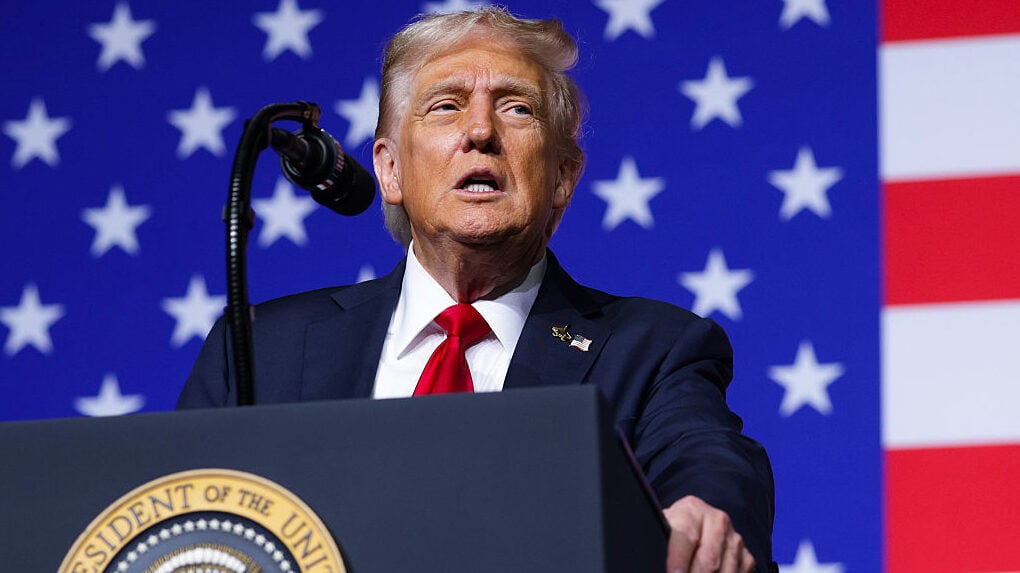Trump’s Controversial Remarks to Military Leaders
On Tuesday, President Donald Trump made headlines during a speech delivered to military leaders, where he not only discussed military policy but also veered into controversial territory by making an off-the-cuff remark regarding the n-word. Alongside Secretary of War Pete Hegseth, Trump asserted that the newly renamed Department of War is taking a stance against what he described as “woke” policies affecting the military.
Rebuilding the U.S. Nuclear Arsenal
In his speech, Trump took pride in what he described as his accomplishment of “rebuilt” nuclear weapons arsenals. The president emphasized the need for military strength, stating, “We have to hope we never have to use it, because the power of that is so incredible.” This strong assertion serves as a reminder of the pivotal role that U.S. military readiness plays in national security.
The N-Word Controversy
Trump’s comments took a troubling turn when he mentioned, “We can’t let people throw around that word. I call it the n-word. There are two n-words, and you can’t use either of them.” This remark sparked immediate backlash, given Trump’s history of alleged racist language. His nephew, Fred Trump III, accused him in a 2024 book of using the n-word in a derogatory context, although a spokesperson for Trump’s campaign labeled this accusation as “completely fabricated.”
The allegations don’t stop there. A former producer of “The Apprentice” also claimed that Trump referred to contestant Kwame Jackson using the slur. Trump has consistently denied these claims, asserting, “I don’t have that word in my vocabulary, and never have.”
Criticizing Woke Policies
In conjunction with Trump’s remarks, Secretary Hegseth took the opportunity to criticize the military’s previous engagement with diversity, equity, and inclusion (DEI) policies. Hegseth lamented that the military had become “the woke department,” emphasizing a need to eliminate what he called “dizzying DEI and LGBTQI+ statements.”
He declared, “No more identity months, DEI offices, dudes in dresses, no more climate change worship, no more division, distraction or gender delusions… we are done with that s—t.” This vehement denunciation of current military policies underscores the administration’s aim to invoke a more traditional, less progressive narrative within the armed forces.
Call for Resignations Among Dissenters
In a striking statement, Hegseth challenged any military general or admiral who disagreed with the administration’s new policies to “do the honorable thing and resign.” Such an ultimatum raises pressing questions about dissent within the ranks and the implications of political allegiance in a space traditionally seen as apolitical.
Military Action in American Cities
During the speech, Trump also defended his controversial use of military force in American cities, particularly those that are predominantly Black and brown, including Los Angeles and Washington, D.C. He described this action as necessary due to an “invasion from within,” a statement laden with implications about race and social disorder.
His threat to deploy military forces in cities like New Orleans, Chicago, and Baltimore has raised alarms among critics, who view such rhetoric as dangerous and polarizing.
Reactions from the Community
In the wake of Trump’s remarks, Richard Brookshire, co-founder of the Black Veterans Project, offered a scathing critique. He stated, “Make no mistake, Trump’s casual racism should be the least of our worries as he sets the stage to hijack our military in order to wage war on American citizens.” Brookshire went on to articulate concern over Trump’s classification of political adversaries as an “enemy within,” suggesting that this language aligns with authoritarian tactics.
Thus, the convergence of military discourse, racial politics, and the push against perceived “woke” policies not only shapes the current political landscape but also stirs deep societal divisions.



